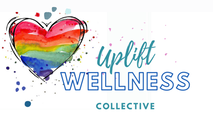| What if we could savor a compliment as well as we could savor a good bowl of ice cream, a piece of Godiva chocolate, or a ripe strawberry? When you receive praise—whether about your new outfit or an accomplishment at work- do you deflect it? Or do you savor it? To increase our well-being, we should get better at this. Here is why. |
Unfortunately, most of us could be better at acknowledging our accomplishments AND enjoying praise from others. In general, we tend toward the self-critical rather than the self-compassionate, toward negative self-talk rather than positive self-talk. Research indicates that when we are kind to ourselves, we feel more confident and view ourselves more positively. People who are kind to themselves, including acknowledging and receiving praise for their accomplishments, have increased motivation and improved productivity, relationships, and physical health. They are flourishing.

- Thank the person for noticing.
- Appreciate their attention and intention.
- Look for good quality in the other person and return the compliment.
- Take the acknowledgment you are given as an opportunity to be grateful to your teachers. (Shetty, 2020).
Look for a good quality in the other person and return the compliment. Turnabout is not only fair play but also good practice! Help nurture someone else's well-being by noticing one of their strengths or helpful contributions. Every time you give a compliment or share praise, it lights up the same area of the brain as when one receives cash—the reward system! Our brains are pre-wired to focus on the negative; giving and receiving compliments or praise creates the opportunity to retrain the brain to think more positively, which reduces stress and burnout.
Take the acknowledgment you are given as an opportunity to be grateful to your teachers. This is an opportunity for you to reflect upon your strengths. What was your achievement? What went well? What allowed you to be successful? Who helped you to learn these skills? When we feel grateful, our brains release dopamine, a reward chemical that makes us want to feel that way again. This promotes gratitude as a habit. You are setting up the brain, a pattern-seeking device, to keep looking for things to be grateful for.
Learn more about promoting your well-being overall and gratitude specifically by reading
Jay Shetty’s Think Like a Monk: Train Your Mind for Peace and Purpose Every Day, 2020, and
Martin Seligman’s Flourish: A Visionary New Understanding of Happiness and Well-being, (2011).
 Please join our Uplift Wellness Collective Facebook Group to continue the conversation about well-being. Scan the QR code or follow this link |















 RSS Feed
RSS Feed